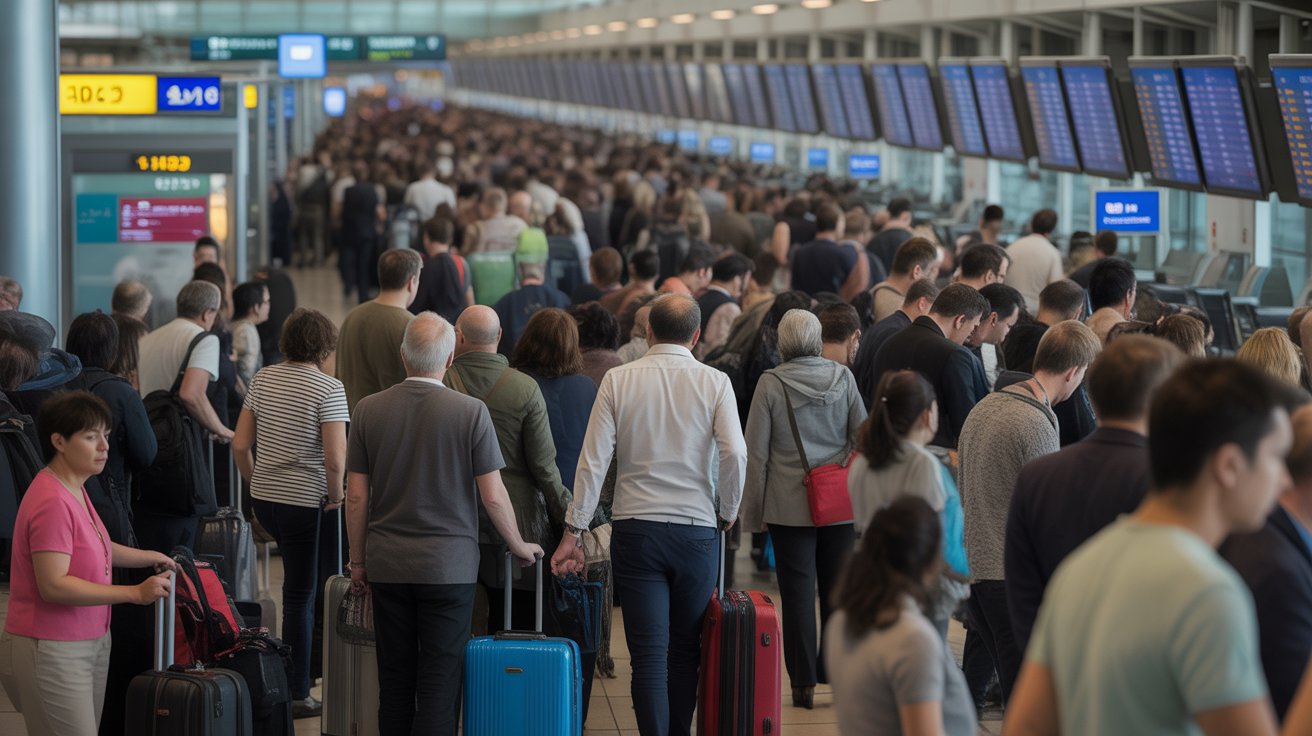Introduction
They had an attack on a computer system at Collins Aerospace, and some big problems at airports around Europe. Flights were late or canceled, and travelers were annoyed because important systems stopped working. The attack showed how unsafe important airplane systems are, and the world paid attention to this big event.
Widespread Airport Disruptions
It was evident from the attack that numerous flights were running late and some that had been scheduled would not fly at all. Among the places hardest hit were in Brussels, Berlin and London’s Heathrow. According to the flight tracker Flight Aware, Saturday was a chaotic day at the airports. There were long lines of people because things were moving slowly.
Parent Company’s Statement
RTX, the main company of Collins Aerospace, said that a “computer-related problem” had been found. They said that the problem affected software at some airports, but they did not say which ones. This statement showed how big the problem was. The company’s statement made people more worried about airplane safety.
Passengers Affected at European Hubs
At Heathrow Airport, the systems from Collins Aerospace had technical problems. These problems made passengers’ flights leave later. The airports in Brussels and Berlin also said that their check-in processes were affected. Separate statements from Dublin Airport and others said that many passengers were having problems.
First-Hand Experiences of Travelers
At Heathrow, a journalist named Tereza Pultarova talked about her situation to BBC News. She said she was supposed to fly to Amsterdam to catch another flight to Cape Town. But the airline she booked did not have a service desk open, which made her and others confused. Many people who were facing delays felt the same way she did.
Another traveler, Siegfried Schwarz, said that his flight from Berlin was delayed. He could not believe that with all the technology available today, there was no way to stop such an attack. His words showed how disappointed many travelers were.
Electronic Check-in Systems Impacted
Collins Aerospace offers systems that allow people to check in themselves These systems also handle boarding passes, bag tags, and sending luggage from kiosks. The company said that the “computer-related problem” affected its MUSE software at some airports. The automatic check-in process stopped working, and only manual processes were available.
Brussels Airport said that the automated systems were not working. They said that people had to check in and handle their luggage manually. The Berlin Airport website also said that people were waiting longer than usual.
Read Also Wrestlepalooza 2025 How To Watch
Company’s Response and Efforts
Collins Aerospace said that teams were trying hard to make everything work again. The company told customers that they were using manual processes to make the problem smaller. They were trying to get the systems back online as soon as they could.
Even though they were told everything was being done, people kept waiting in long lines. Many were worried about missing their connecting flights and having to stay overnight. Airport staff worked with airlines to deal with the increasing stress inside the airport.
Rising Threat of Cyber Attacks in Aviation
It has been observed that computer attacks and technological failures have caused problems for airports everywhere in the last few years. Previous troubles at airports in Japan and Germany also illustrate how dependent they are on connected networks. Anecdotes aside, the people who attempt to hack into systems really seem to have it in for aviation.
Computer attacks on the aviation industry leapt 600 percent from 2024 to 2025, according as part of the process, from airports to how planes are guided, was termed open to attack. This report was used as proof that the danger is getting bigger.
Recent Examples of Aviation Sector Breaches
The report also said that in July, the Australian airline Qantas was attacked. Private details of six million customers were revealed in that break-in. So, the attack on Collins Aerospace was called part of a bigger trend. The world’s aviation business was tested many times by those who hack into systems.
The increasing number of events showed that airlines, airports, and those that supply them were still in danger. Because aviation is so important, those who commit cyber crimes are very interested in it.
Conclusion
In conclusion, the computer attack on Collins Aerospace made big problems at major airports in Europe. Hundreds of delays and canceled flights were confirmed. People traveling said it was a mess and made them upset. Statements from RTX and airport officials said the event was very serious. The attack showed that aviation systems are very open to threats from computer-related issues.
Although Collins Aerospace scrambled to right the situation, the disruption underscored the risks of relying on digitized systems. While the attacks are growing, so will be needed defense. Hiatt: To these questions applies my old sailor’s story, that ‘all ships are beautiful after 50 days at sea,’
By which he meant to say that it is one thing for a theory to survive the test of experience and quite another for that first, happy-validation-of-my-view-of-the-world ugly duckling to become something more than an oddball anomaly.
